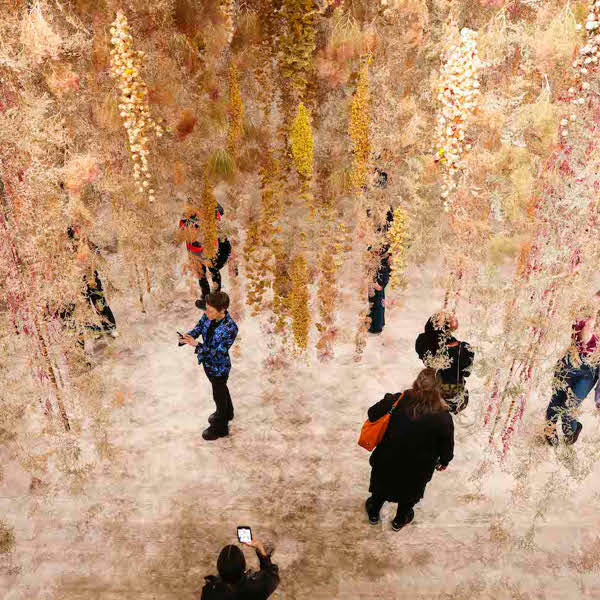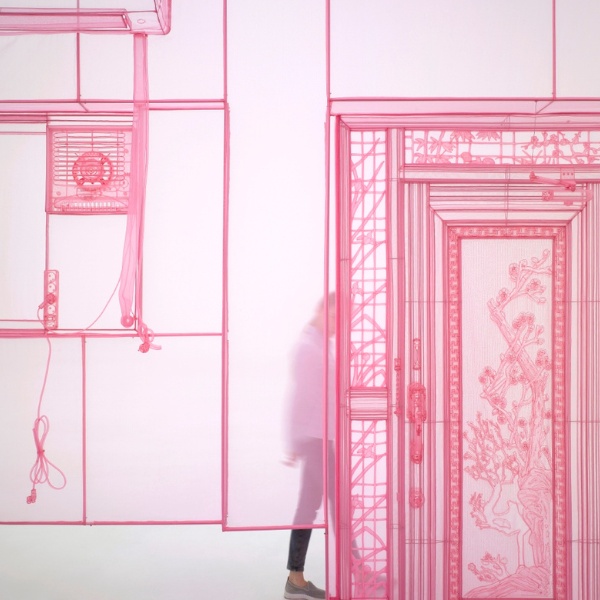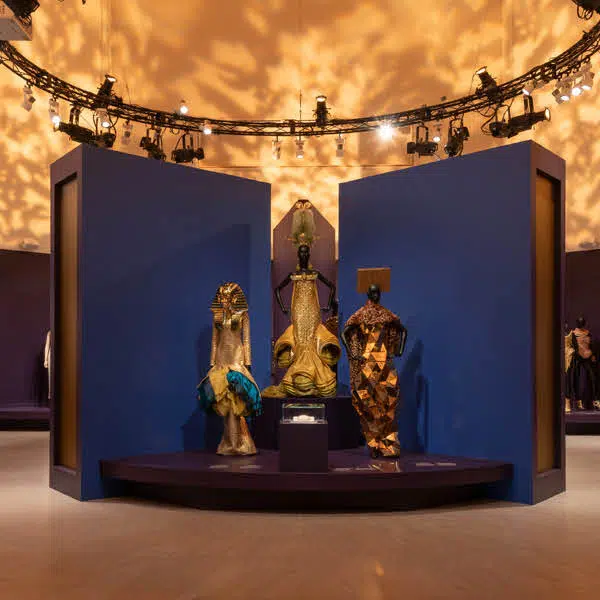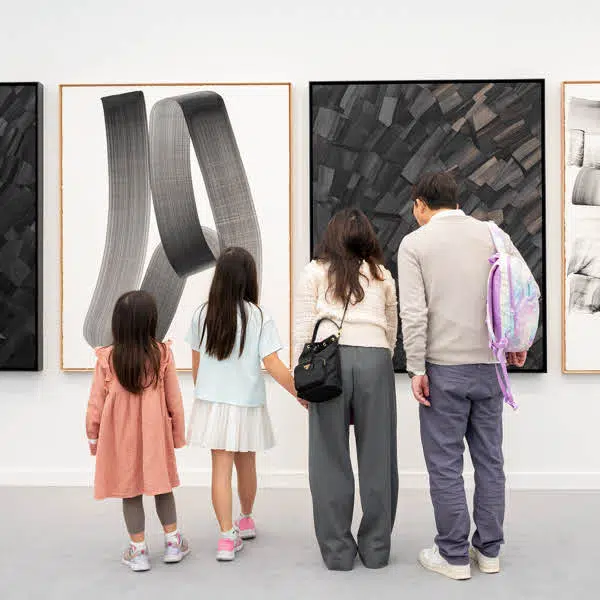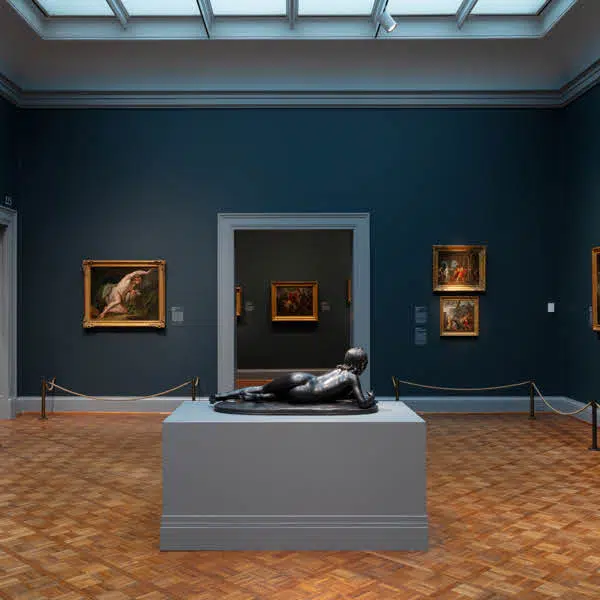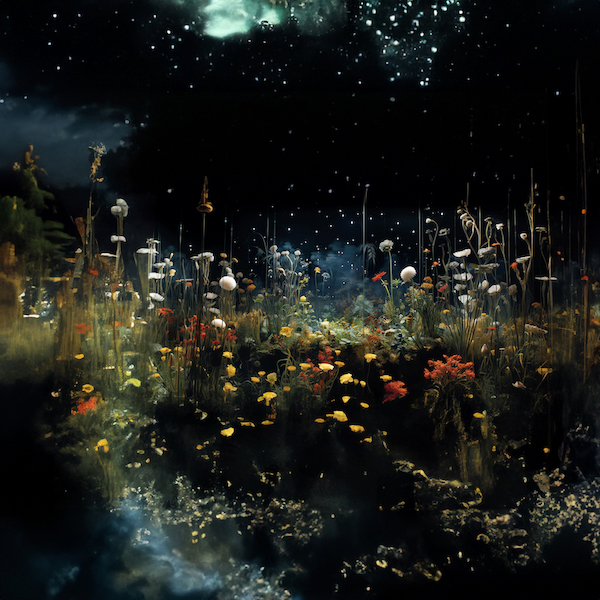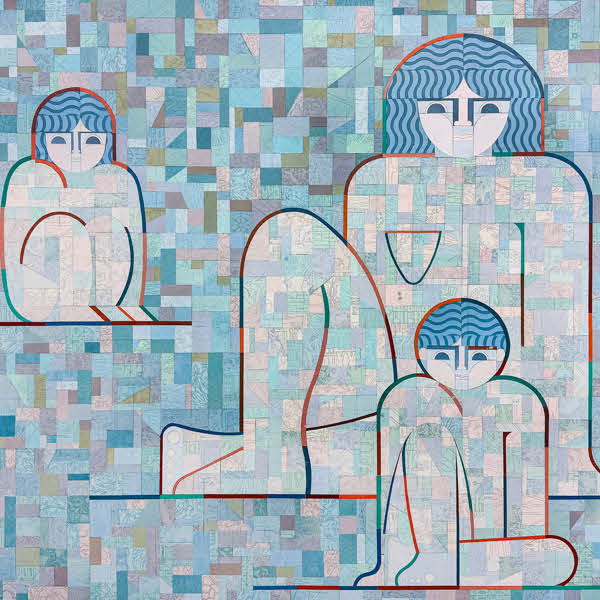Other performers depicted by Toulouse-Lautrec include May Milton, Misia Natanson, and May Belfort.
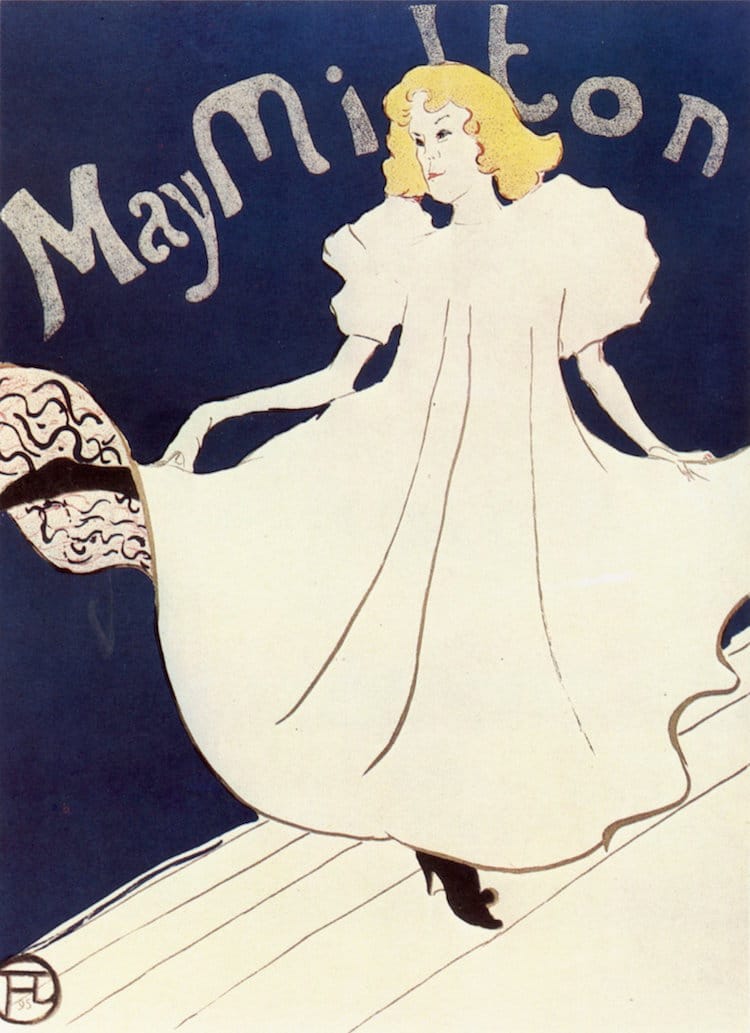
‘May Milton' (1891) (Photo: Henri de Toulouse-Lautrec [Public domain], via Wikimedia Commons)
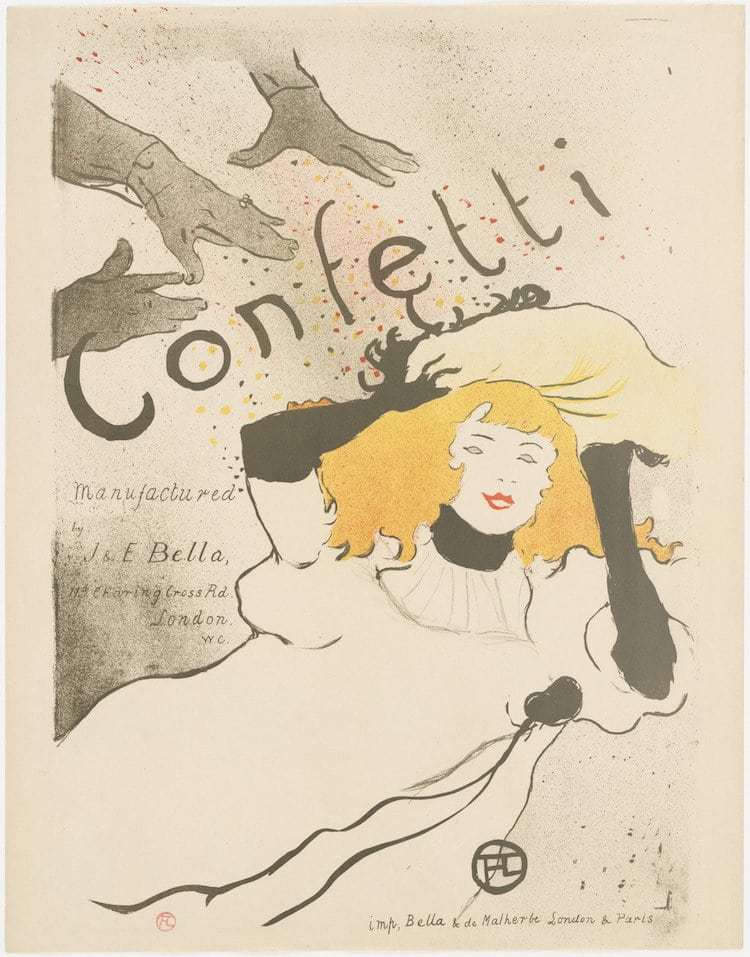
Misia Natanson in ‘Confetti' (1894) (Photo: Henri de Toulouse-Lautrec [CC0], via Wikimedia Commons)
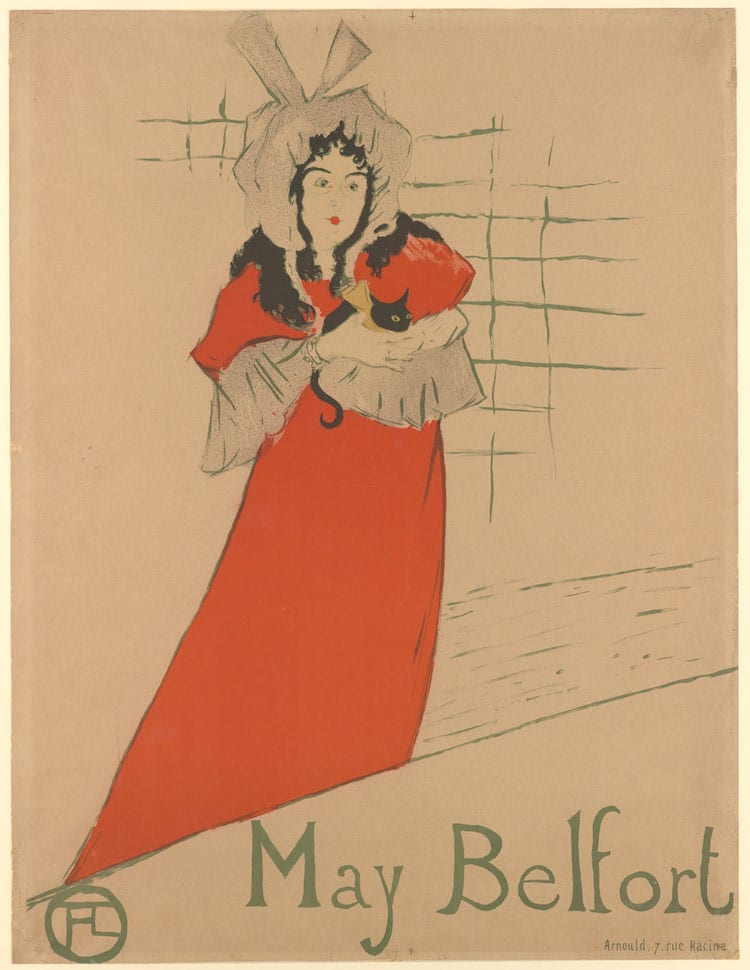
‘May Belfort' (1891) (Photo: Henri de Toulouse-Lautrec [CC0], via Wikimedia Commons)
Patrons
In addition to the cabarets' can-can dancers and singers, Toulouse-Lautrec's posters also feature the sites' bohemian patrons. These subjects showcase Toulouse-Lautrec's tendency to people-watch—an activity that manifests in his entire body of work. “Only the human figure exists,” Toulouse-Lautrec explained. “Landscape is, and should be, no more than an accessory; the painter exclusively of landscape is nothing but a bore.”
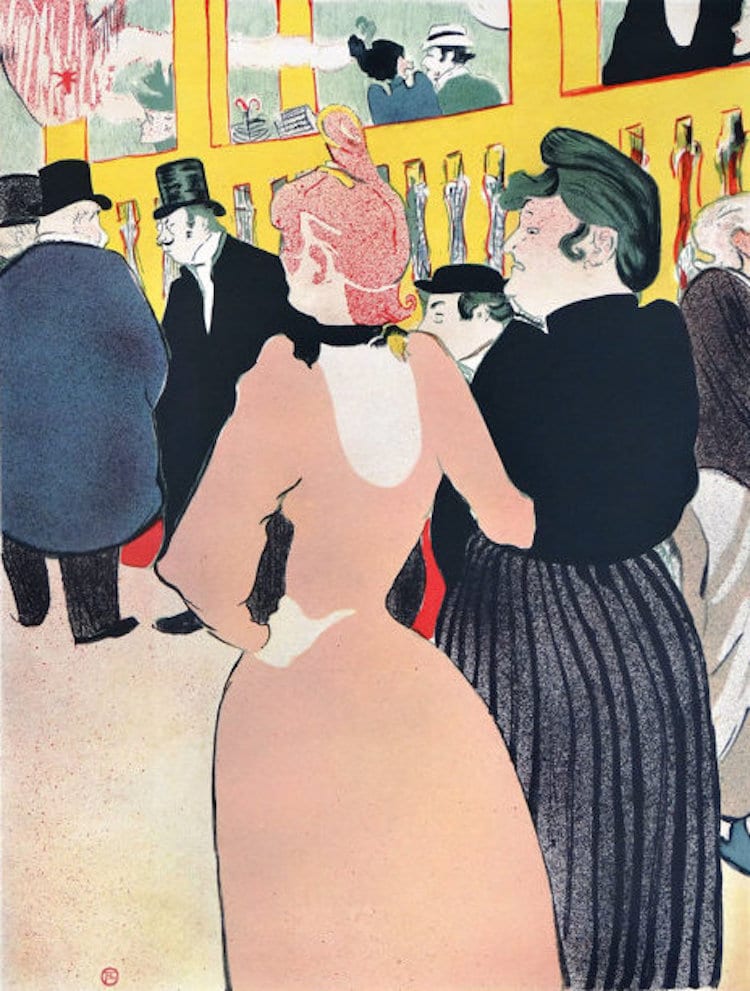
‘At the Moulin Rouge: La Goulue and Her Sister' (1892) (Photo: Henri de Toulouse-Lautrec [CC0], via Wikimedia Commons)

‘The Englishman at the Moulin Rouge' (1892) (Photo: Henri de Toulouse-Lautrec [Public domain], via Wikimedia Commons)
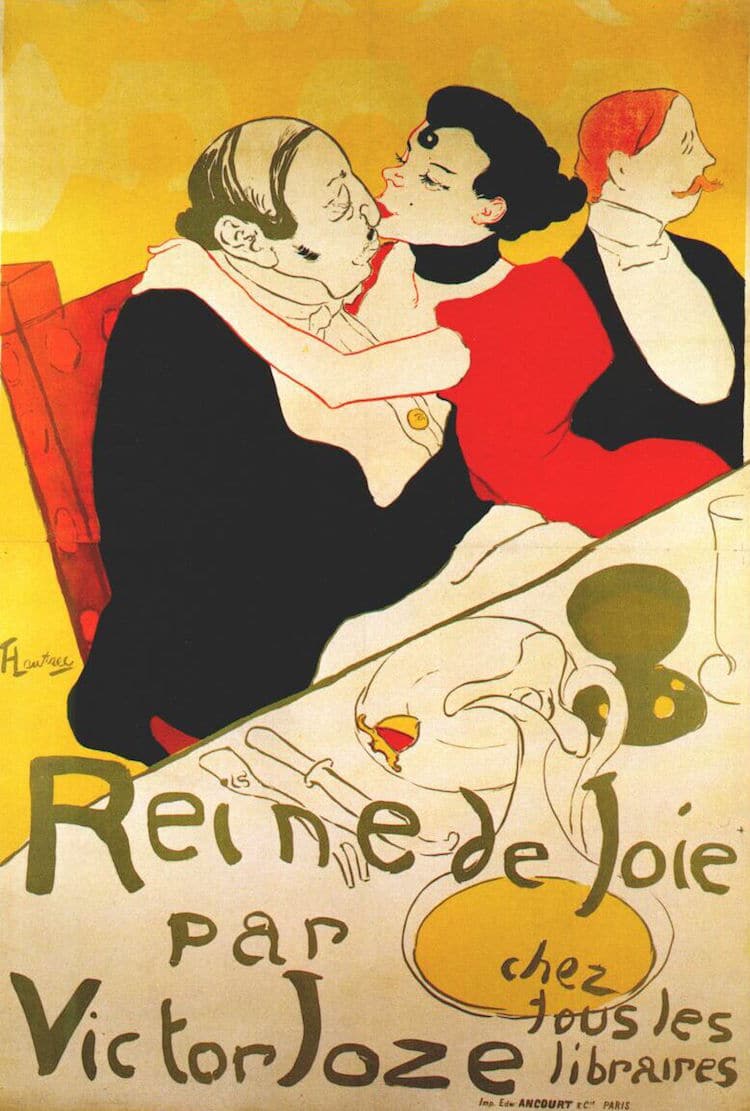
‘Reine de Joie' (1892) (Photo: Henri de Toulouse-Lautrec [Public domain], via Wikimedia Commons)
Legacy
Today, Toulouse-Lautrec's posters are regarded as some of the artist's most recognizable work. On top of their aesthetic value and stylistic significance, the pieces are also celebrated for the modernity of their processes, as they elevated the role of printmaking to an art form and helped to pioneer and popularize graphic design.
To Toulouse-Lautrec, however, the innovative nature of his tools was not nearly as important as the content of his creations. “In our time there are many artists who do something because it is new; they see their value and their justification in this newness,” he explained. “They are deceiving themselves; novelty is seldom the essential. This has to do with one thing only; making a subject better from its intrinsic nature.”
If you'd like to download your own free Toulouse-Lautrec poster, be sure to check out Art of the Poster 1880-1918, a collection of posters from the “Golden Age” of graphic design curated by Minneapolis College of Art and Design (MCAD).
Related Articles:
Exploring the Vision and Diverse Styles of Post-Impressionism Pioneers
Iconic Artists Who Have Immortalized Themselves Through Famous Self-Portraits
How Van Gogh’s ‘The Starry Night’ Came to Be and Continues to Inspire Artists











































































